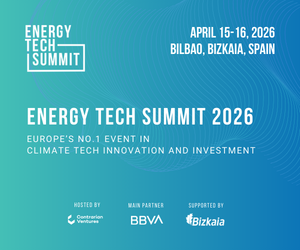Search - Search on Articles, Blogs & Tags
Total Results : 815
GE Vernova and Alfanar form joint venture to develop renewable energy projects in Spain
- 2023-11-20 05:59:21.709599
- David Flin
GE Vernova’s Financial Services business and Alfanar Energia España (Alfanar) have established a joint venture to develop renewable energy projects in Spain.
Portugal sets new renewable energy production record
- 2023-11-08 07:25:55.339221
- David Flin
Redes Energéticas Nacionais (REN), Portugal’s network manager, announced that for 149 consecutive hours, renewable energy production in the country exceeding consumption.
New York announces major state investment in renewable energy
- 2023-10-25 06:46:39.052423
- David Flin
New York Governor Kathy Hochul has announced that largest state investment in renewable energy in US history.
Taiwan to launch first volcanic geothermal power plant
- 2023-10-06 05:57:44.689277
- David Flin
The city government of New Taipei has announced that Taiwan is preparing to launch its first commercial geothermal power plant which will draw energy from a volcano.
Germany to pass 50 per cent mark for renewable power this year
- 2023-09-19 06:42:02.091288
- David Flin
Robert Habeck, Germany’s Economy Minister, said that the country is likely to generate more than 50 per cent of its power from renewable energy this year, but that it needs to increase the speed of its transition.
Grid inadequacy makes renewable growth futile
- 2023-09-08 16:01:12
- Junior Isles
A rise in renewable energy is futile if our grids can’t keep pace with the growth.
By Frédéric Godemel, EVP Power Systems and Services at Schneider Electric
The criticality of digital technology in electrification and meeting net zero targets
- 2023-08-11 23:38:34
- Junior Isles
Digital software provides the foundation for wide-scale adoption of electricity as a power source but to maximise value from distributed power a reality, developments in digital software will be required.
by Ron Beck, Senior Director, AspenTech
Capital Energy to sell $1 billion renewable energy portfolio
- 2023-07-31 06:58:23.216306
- David Flin
Capital Energy has hired Lazard to sell a portfolio of 4.3 GW of solar and onshore wind power plants in Spain, estimated to be worth up to $1 billion.
Green power projects in South Africa failing
- 2023-07-19 07:38:30.655805
- David Flin
Nearly half of the projects awarded under the relaunch of South Africa’s renewable power purchase programme have failed, undermining plans to use wind and solar to ease the nation’s energy crisis.
India takes five-year pause on coal power plant proposals
- 2023-06-05 06:50:26.070197
- David Flin
The Indian Government has announced through its updated National Electricity Plan that it will not consider coal-fired power plant proposals for the next five years in a bid to increase its renewable capacity.












